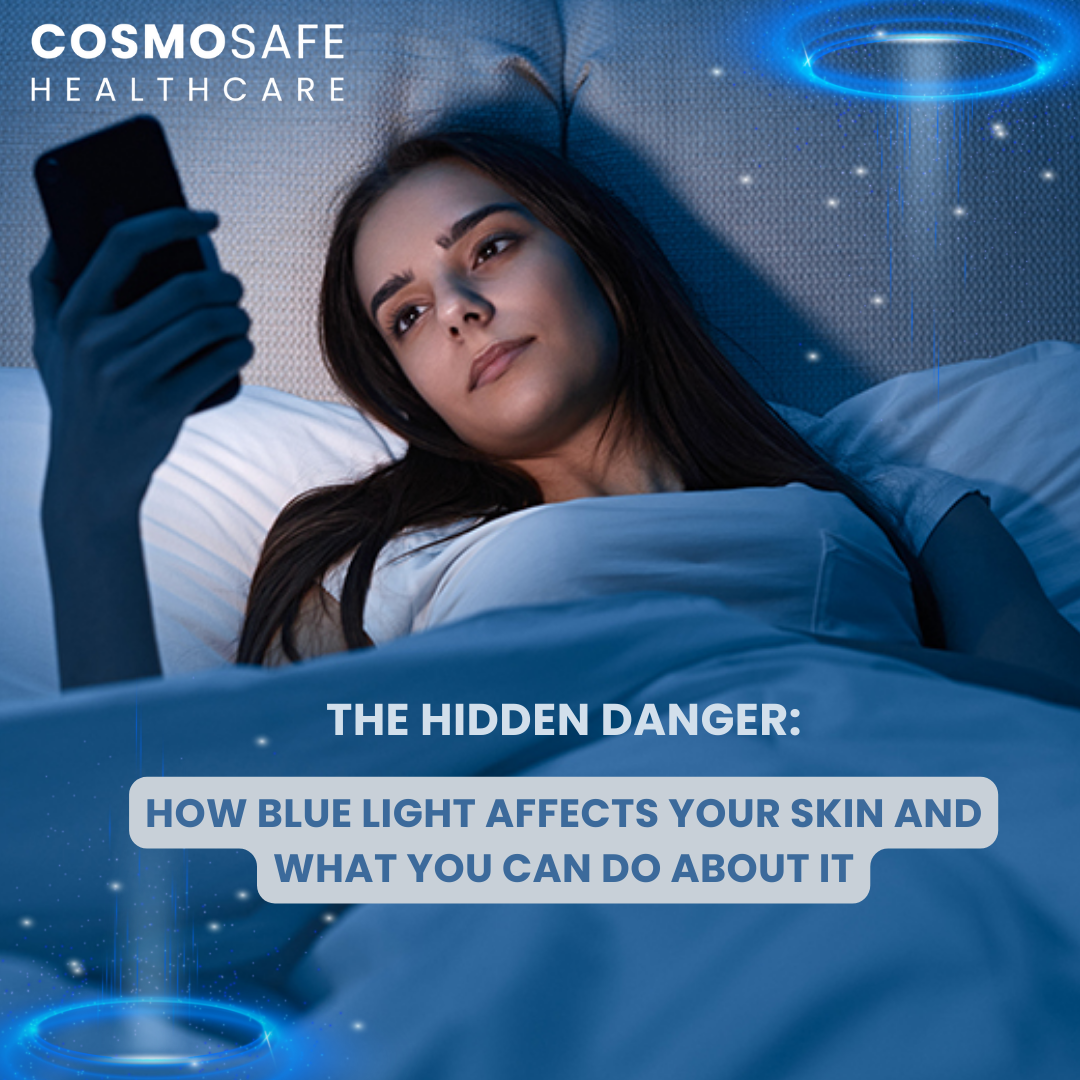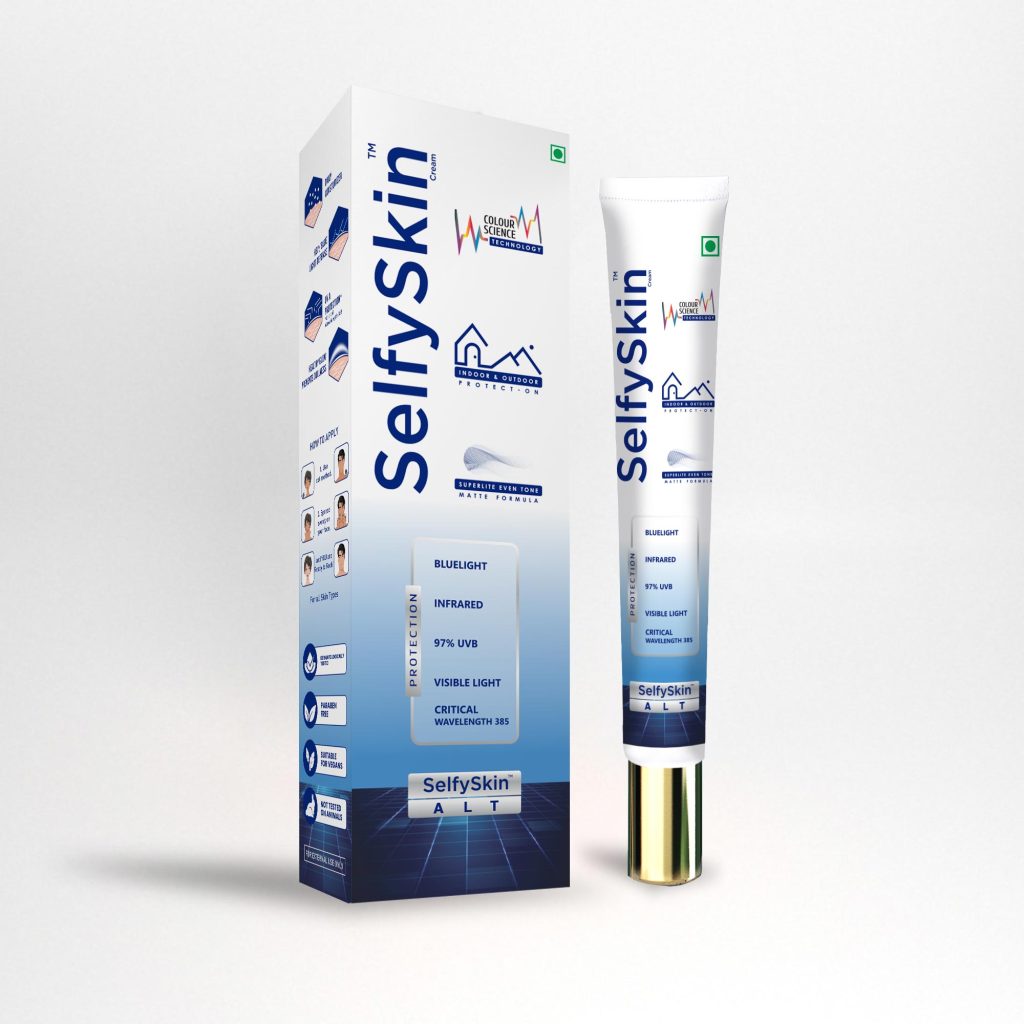We’ve all heard about the damaging effects of the sun’s UV rays, but there’s a more subtle and pervasive culprit in our everyday lives that’s silently wreaking havoc on our skin: blue light. You might be thinking, “Blue light? Isn’t that just something that affects our eyes?” Well, it’s not just about eye strain; it turns out that blue light is also one of the major causes of premature skin aging.
Blue light, also known as High Energy Visible (HEV) light, is a part of the visible light spectrum. While it’s often associated with sunlight, blue light is emitted from many of the screens we interact with daily—our cell phones, laptops, televisions, and even LED lights. The problem? We’re exposed to it more than ever before. In fact, with the pandemic forcing us indoors, many of us are spending even more time in front of screens, dramatically increasing our exposure.
But what’s the real danger here? While blue light might not burn your skin like UV rays, its effects are insidious and long-term. Dermatologists around the world are raising alarms about the hidden dangers of blue light exposure, and it’s crucial to understand how it impacts our skin.
The Invisible Impact of Blue Light on Skin
While we know that blue light can damage our eyes, what many don’t realize is that it also causes a significant amount of harm to our skin. Research shows that prolonged exposure to blue light can lead to a variety of skin issues, including hyperpigmentation, brown spots, dark spots like melasma, and even wrinkles. These effects may not be visible right away, but the damage accumulates over time.
Studies published in the International Journal of Cosmetic Science show that blue light can disrupt the skin’s natural regenerative cycle, leading to long-term skin damage. In one pivotal study, the Journal of Investigative Dermatology found that blue light exposure caused more redness, swelling, and pigmentation than UVA rays. The key takeaway here is that while you may not see immediate effects, the cumulative damage of blue light is real and potentially just as damaging as UV exposure.
How Blue Light Contributes to Photoaging
The long-term exposure to blue light can cause premature aging of the skin, also known as photoaging. This includes breakdown of collagen, leading to the formation of wrinkles and sagging skin. But that’s not all; blue light can also accelerate the development of brown spots and uneven skin tone.
Interestingly, dermatologists are seeing an uptick in cases of melasma, dark patches that often appear on the cheeks or around the ears, especially in people who spend a lot of time on their phones, as the screen is held close to the face. This is a growing concern as more people are tethered to their devices for work and entertainment.
The Hidden Skin Damage of Screen Time
The effects of blue light on the skin aren’t limited to those who work in front of screens for long hours. Simply being on your phone or watching TV at night can expose your skin to damaging blue light, increasing the risk of hyperpigmentation, wrinkles, and even collagen breakdown. So, the next time you’re glued to your phone or binge-watching your favorite series, think about the impact those extra hours could be having on your skin.
Protecting Your Skin From Blue Light
The good news is that you can protect your skin from the harmful effects of blue light by adopting a skincare routine that focuses on blue light protection. Just like you’d use sunscreen to shield your skin from UV rays, using skincare products that block blue light is becoming increasingly essential.
SelfySkin ALT Cream 20GM is one such product designed specifically to offer blue light protection. Incorporating this into your skincare routine can help shield your skin from the harmful effects of prolonged screen time, helping you maintain a youthful glow even in this digital age.
Wrapping Up: Skin Care Beyond the Basics
While blue light may not be as well-known as UV light, its damaging effects on the skin should not be underestimated. By understanding how blue light impacts your skin, you can take proactive steps to protect yourself, whether that’s by using blue light-blocking skincare products or simply reducing screen time. After all, your skin deserves the same level of protection from blue light as it does from the sun.
So, the next time you find yourself scrolling through your phone or staring at your laptop for hours on end, remember: a little protection goes a long way. Your skin will thank you for it, now and in the future.


